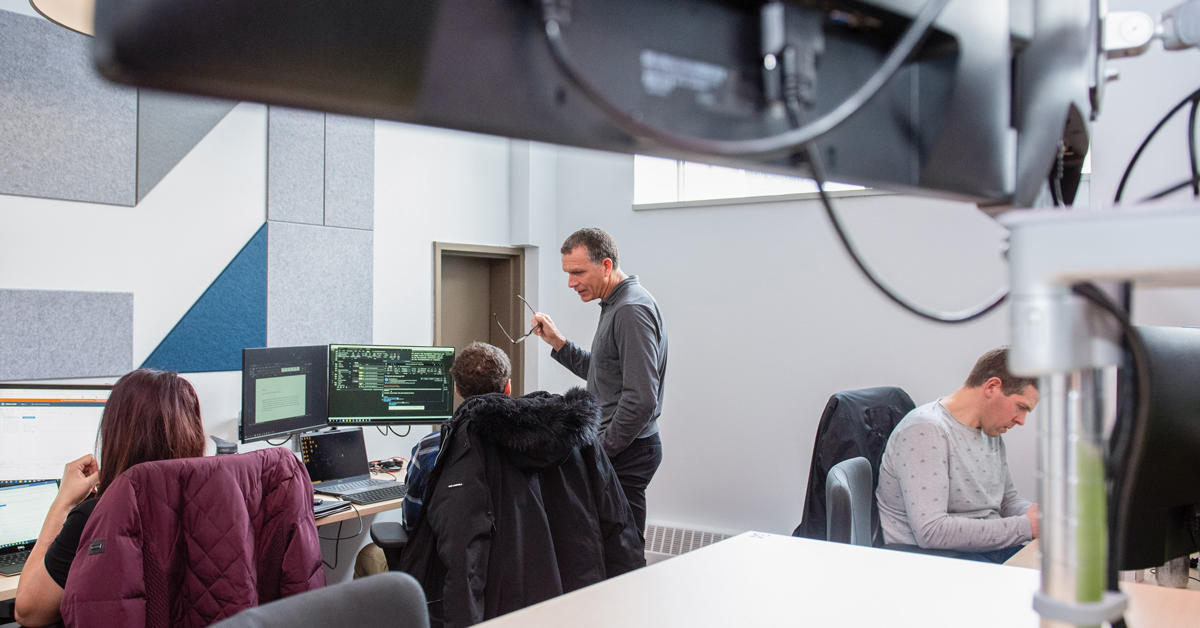The University of Ottawa will welcome three new research software experts to help researchers bring their big ideas to life, thanks to new funding from CANARIE.
“This CANARIE award will help our researchers advance their work,” says Guy Levesque, Associate Vice-President, Research Support and Infrastructure. “This funding offers new opportunities to develop software that will help strengthen the University’s research capabilities and facilitate innovation.”
The new experts will help advance research efforts by creating and tailoring research software to meet the needs of researchers, while also making it more robust, portable, and well-documented. By centralizing the support and development of research software, the University will be poised to develop purposeful software that can be shared across the institution.
“Thanks to the great feedback from our research community, we were able to better understand their needs for software support,” says Martin Bernier, Chief Information Officer. “The partnership between CANARIE and our community will facilitate more collaborations, creative solutions to problems, and greater opportunities for discovery in research.”
uOttawa is one of six institutions receiving funding for research software development from CANARIE, for a total investment of $3.6 million.
Faculty members who were consulted at the time of the grant application enthusiastically welcomed this news.
“Professional software development support will improve the quality of our work, support learning by our highly qualified personnel, and ensure that our research succeeds while meeting all confidentiality and ethical requirements,” says Ryan Graham, Associate Professor, School of Human Kinetics. “The development support would not only improve the overall quality of our modelling but would ensure a higher level of usability across research groups at the University of Ottawa and worldwide, to ensure that our research efforts are as wide-reaching and as beneficial as possible.”
“Having institutional resources to support this type of knowledge mobilization project is invaluable to researchers who want to use their research to improve the quality of life of Canadians,” says Bénédicte Fontaine-Bisson, DtP, associate professor at the Faculty of Health Sciences.
Once the hiring process for the software experts is complete, the University will launch a call for proposals for members of the research community who are already eager to leverage their knowledge and work closely with these experts in the development of software specific to their needs.
